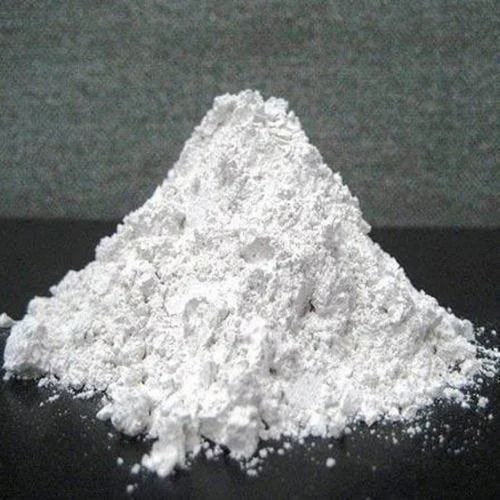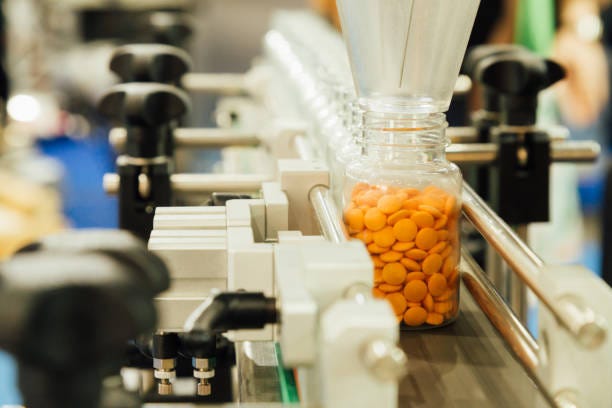Understanding The Pharma Industry - Part V: CROs and CDMOs
In this article, we explore CROs (Contract Research Organizations) & CDMOs (Contract Development & Manufacturing Organizations) & how they are crucial to the Pharma Industry.
Tara is chemical engineering major with past experience of working at a big pharmaceutical MNC. Two years ago, she attended her college reunion, where she got to catch up with her old friends. During their discussions, they stumbled upon an idea to launch their own pharmaceutical startup - Pulse Pharmaceutical Ltd. (PPL).
Today, Pulse Pharmaceuticals Ltd. (PPL) is an innovator pharma company. Its focus therapy areas are — Neurology (deals with nervous system disorders), Cardiology (deals with heart disorders) & Oncology (deals with treatment of cancer ). Let’s understand how PPL discovers & develops a drug.
1. Identification of the Therapeutic Area
Pulse Pharma is actively engaged in identifying unmet patient needs within these therapy areas. Recently, company identified Alzheimer’s as a priority, considering factors like its prevalence, severity, and the lack of effective treatments.
2. Target Identification & Validation
Pulse Pharma has a multidisciplinary R&D team of medicinal chemists, biochemists, pharmacologists, and other experts, who have been working with medical experts & market analysts to delve into the underlying mechanisms of Alzheimer’s (like understanding the role of amyloid plaques and tau tangles in neurodegeneration) to identify potential drug targets.
3. Lead Generation & Optimization
Once Pulse Pharma’s R&D team identify a target, they embark upon a search for lead compounds — which are molecules that show potential in interacting with the target — each of these lead compounds may have its own unique chemical structure and pharmacological profile.
These leads are then optimized through iterative cycles of chemical modification and testing to enhance their properties, potency, selectivity, & safety profiles. This is done to identify the most promising candidate for further development by assessing the impact of structural modifications on the compound's biological activity and pharmacokinetic profile.
4. Preclinical Testing
Now, these lead compounds need to undergo rigorous preclinical testing to assess their efficacy, safety, pharmacokinetics, and toxicology in cellular and animal models of the disease. This stage helps in selecting the most promising candidate for further development, which is designated as NCE API.
But Pulse Pharma faces a big challenge at this stage. Preclinical testing requires specialized facilities, equipment, and expertise to conduct a wide range of studies, including pharmacology, toxicology, pharmacokinetics, and ADME (absorption, distribution, metabolism, excretion).
But Pulse is just a startup. Though they have an exceptionally talented team, their resources are very limited. Neither can they afford huge capital expenditure for specialized facility & equipment nor do they have enough experience of conducting large-scale tests, so they decide to outsource it to someone who has — Nova Labs, a CRO.
CRO (Contract Research Organization)
A CRO or Contract Research Organization, is a company that provides research services on a contractual basis to the pharmaceutical & biotech companies. CROs offer a wide range of services across the drug development process, from preclinical research to clinical trials and regulatory submissions.
These services can include:
Preclinical Research: Conducting in vitro and in vivo studies to assess the safety, efficacy, and pharmacokinetics of drug candidates.
Clinical Trials: Planning, designing, and conducting clinical trials to evaluate the safety and efficacy of investigational drugs in human subjects. This includes Phase I-IV trials, as well as specialized trials such as bioequivalence studies and pharmacovigilance.
Data Management and Biostatistics: Collecting, managing, and analyzing clinical trial data to ensure accuracy, quality, and regulatory compliance.
Regulatory Affairs: Assisting with the preparation and submission of regulatory documents to obtain approval from regulatory agencies such as the U.S. Food and Drug Administration (FDA) or the European Medicines Agency (EMA).
Quality Assurance and Compliance: Ensuring that research activities and clinical trials are conducted in accordance with Good Clinical Practice (GCP) guidelines and other applicable regulatory standards.
Bioanalytical Services: Developing and validating analytical methods to measure drug concentrations and biomarkers in biological samples collected during clinical trials.
Pharmacovigilance and Safety Monitoring: Monitoring and reporting adverse events and safety data throughout the course of clinical trials and post-marketing surveillance.
Medical Writing: Preparing scientific and regulatory documents, including study protocols, clinical study reports, and regulatory submissions.
5. Investigational New Drug (IND) Application
The NCE API, along with supporting preclinical data, is then included in the IND application — a submission made to regulatory authorities to request authorization to conduct clinical trials of the NCE API in humans — to provide a comprehensive overview of the investigational drug and its proposed clinical development plan.
The company submits this Investigational New Drug (IND) application to regulatory agencies — like the FDA (US), EMA (EU), PMDA (Japan), ANVISA (Brazil), etc. — of their target market (countries where it intends to sell the drug).
6. Clinical Trials
The drug candidate progresses through three phases of clinical trials:
Phase 1: Small-scale studies conducted on healthy volunteers to evaluate safety, dosage, and pharmacokinetics.
Phase 2: Larger trials involving patients to assess efficacy and further evaluate safety.
Phase 3: Large-scale, randomized, controlled trials to confirm efficacy, monitor adverse reactions, and gather additional safety data.
Conducting clinical trials requires a diverse range of resources, including clinical research sites, investigators, study coordinators, data managers, and regulatory affairs professionals. Access to specialized facilities, such as hospitals and clinics, as well as expertise in study design, patient recruitment, and regulatory compliance, is essential. But Pulse Pharma doesn’t need to worry about it has their CRO, Nova Labs would handle all of this for them.
7. New Drug Application (NDA) Submission & Regulatory Review
If the results from clinical trials are positive, the company submits a New Drug Application (NDA) to regulatory agencies. This comprehensive application includes all data from preclinical and clinical studies, along with manufacturing information and proposed labeling.
Regulatory agencies review the NDA to ensure that the drug's benefits outweigh its risks and that it meets quality, safety, and efficacy standards.
Nova Labs assists Pulse Pharma with preparation of the NDA submission & provides support as needed during regulatory review, including responding to queries and providing additional information.
8. Approval and Market Launch
Upon successful completion of the regulatory review process, the drug receives approval for marketing. The company can then launch the drug into the market.
9. Post-Market Surveillance
Even after approval, Nova Labs helps Pulse Pharma to monitor the drug's safety and efficacy through post-marketing surveillance and pharmacovigilance programs, and ensuring no adverse events are reported by healthcare professionals and patients, maintaining compliance with regulatory requirements for safety monitoring.
After the Preclinical Trial Stage, Pulse Pharma needed to formulate its NCE API into a dosage form, before moving onto clinical trials on humans.
API itself cannot be consumed by humans directly. Instead, it needs to be formulated into a finished dosage form (tablet, capsules, injections, etc.) by adding inactive ingredients called excipients - such as fillers, binders, disintegrants, lubricants, preservatives, flavorings, and coloring agents — to the API to stabilize it & deliver the right dosage amount.
Therefore, Pulse Pharma must complete the formulation development & provide detailed information about the drug product, including its formulation, manufacturing process, and stability data in the IND application.
Again, Pulse Pharma faces a roadblock. Neither does it have funds for building manufacturing facilities nor does its team have any experience with manufacturing process & getting the facility approved by regulatory authorities. So they hire someone who has — Infinity Drugs, a CDMO.
CDMO (Contract Development & Manufacturing Organization) is a company that provides services to the pharma & biotech companies on a contractual basis, spanning from drug development to commercial manufacturing.
It provides expertise, infrastructure, resources & offer flexibility and scalability to pharma companies, allowing them to outsource specific activities and focus on their core competencies. CDMOs offer a broad range of services:
Drug Development Services: services aimed at advancing drug candidates through preclinical and clinical development stages.
CTMs & Commercial Manufacturing: produce the necessary quantities for use in clinical trials, & scale up production for commercial distribution, ensuring compliance with Good Manufacturing Practice (GMP) regulations.
Packaging and Labeling: provide packaging and labeling services for drug products, ensuring compliance with regulatory requirements and providing customized packaging solutions as needed.
Supply Chain Management: offer supply chain management services, including sourcing raw materials, managing inventory, and distribution of finished products.
Technology Transfer: assist in transferring technology from research and development laboratories to manufacturing facilities, ensuring seamless transition and maintaining product quality and consistency.
Quality Assurance and Regulatory Compliance: ensure that all manufacturing activities comply with regulatory requirements and industry standards, including GMP regulations and relevant guidelines from regulatory agencies such as the FDA and EMA.
Formulation Development
Infinity helps Pulse Pharma with formulation development by formulating the Alzheimer API into the final dosage form of a tablet. This also involves optimizing the formulation to ensure stability, efficacy, and patient acceptability.
Process Development
Once the formulation is established, Infinity Drugs works on developing the manufacturing process for producing Pulse’s Alzheimer tablet at scale. This includes optimizing the manufacturing process to ensure consistent quality, reproducibility, and scalability.
Manufacturing CTMs (Clinical Trial Materials)
During clinical development stages, Infinity manufactures the CTMs (clinical trial materials) required for conducting clinical trials. This involves producing small-scale batches of the drug product according to Good Manufacturing Practices (GMP) standards for use in Phase I, II, and III clinical trials.
Scale-Up and Commercial Manufacturing
After regulatory approval, Infinity Drugs scales up the manufacturing process to produce larger quantities of the Alzheimer’s drug for commercial distribution i.e. for sale & distribution in the market . This involves transitioning from manufacturing small-scale batches for clinical trials to full-scale commercial production.
Lifecycle Management:
Throughout the lifecycle of Pulse Pharma’s Alzheimer’s drug , Infinity continues to provide manufacturing support, including process optimization, technology transfer, and supply chain management. Additionally, it also assists with post-approval changes, such as variations to manufacturing processes or formulations, as required by regulatory agencies.
So, Pulse Pharma set the overall R&D strategy for its product — including focus on unmet needs of patients, target identification & prioritizing drug candidates for development — did marketing & branding for its drug and established partnerships with distributors, wholesalers, and pharmacies to distribute the product to healthcare providers and patients, while protecting its IP (intellectual property) rights to ensure a competitive edge over its competitors.
Now, Tara & her friends successfully run their pharma startup, doing what they specialize in, & outsourcing all other tasks to CROs & CDMOs.
Hope you learned something new from this read. If you found this helpful, your friends might too. Feel free to share.😊

















